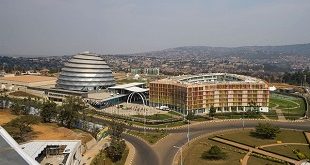
By John Wynand Katende
Some reactions to Archbishop Cyprian Kizito Lwanga’s Eastermessage entitled : “The Unanswered Question that Needs Public Debate To Reach a Consensus for the Good of Our National Unity and Stability Namely:’The Buganda Uganda Question” warrant comment. Firstly, the Archbishop gave the message at the end of Mass and not during the day’s sermon. Uganda has gone through stages of transformation, some of which have been and still are so thorny that we can hardly forge the desired national unity and stability without objectively and conclusively addressing them, basing on the truth. The Buganda Question happens to be major, as was so well illustrated by the ‘Buganda Conference 2009’ at Hotel Africana.
Others include: the Northern Question, the Karamoja Sub-region Question, the Soroti Question in Eastern Uganda, the Luwero Triangle Question, the Bafuruki Question in Bunyoro, etc. The religious question in Uganda’s politics is, happily, being aptly addressed through institutions like the Uganda Joint Christian Council.
Archbishop Lwanga is on record for having spearheaded a national conference on sustainable national reconciliation, justice and peace in September 2009. It engaged a number of cultural, religious, and civic leaders, including the President of Uganda. The same conference served as a preamble to the Second Synod for Africa that took place in Rome in October 2009 under the theme: “The Church in Africa in Service to Reconciliation, Justice and Peace.”

The Archbishop put to task the British government for an explanation behind Buganda’s political independence just on the eve of that of Uganda’s independence in 1962. To enhance the debate, the prelate proposes the formula of an accord between Buganda and the rest of Uganda, similar to that between Italy and the Vatican State. This is a scenario of state within a state, but enjoying amicability and stability. Despite his role as the supreme religious leader, the Pope also plays another major role in international politics, including exchange of diplomatic relations with governments and the United Nations Organisation. This role further legitimises that of the Archbishop in our local politics. Being God’s prophet, he does so disinterestedly.
The Archbishop is, hence, duty-bound to call upon all peace-loving Ugandans to debate with sobriety and a patriotic mindset. Consensus based on dialogue on all issues affecting all levels of society, and not on coercion, betrayal and bribery, is crucial for forging unity and stability.
Turning the debate against an individual would be fallacious and sweeping the dirt under the carpet. Nor would it be helpful to question the moral authority of religious leaders over deliberating on political issues affecting the very society over which God has ordained them to minister to? We would do well, this time, to avoid a repeat of wasting opportunities as the one offered by the Archbishop Dr Joseph Kiwanuka’s prophetic pastoral letter, ‘Church and State’ of 1965. We probably need to be reminded, time and again that God is the Lord of history, and that religion is the soul of society. Reference may finally be made to our national motto: ‘For God and my Country’.
The writer is Episcopal Vicar for Public Relations, Archdiocese of Kampala
 The Independent Uganda: You get the Truth we Pay the Price
The Independent Uganda: You get the Truth we Pay the Price



